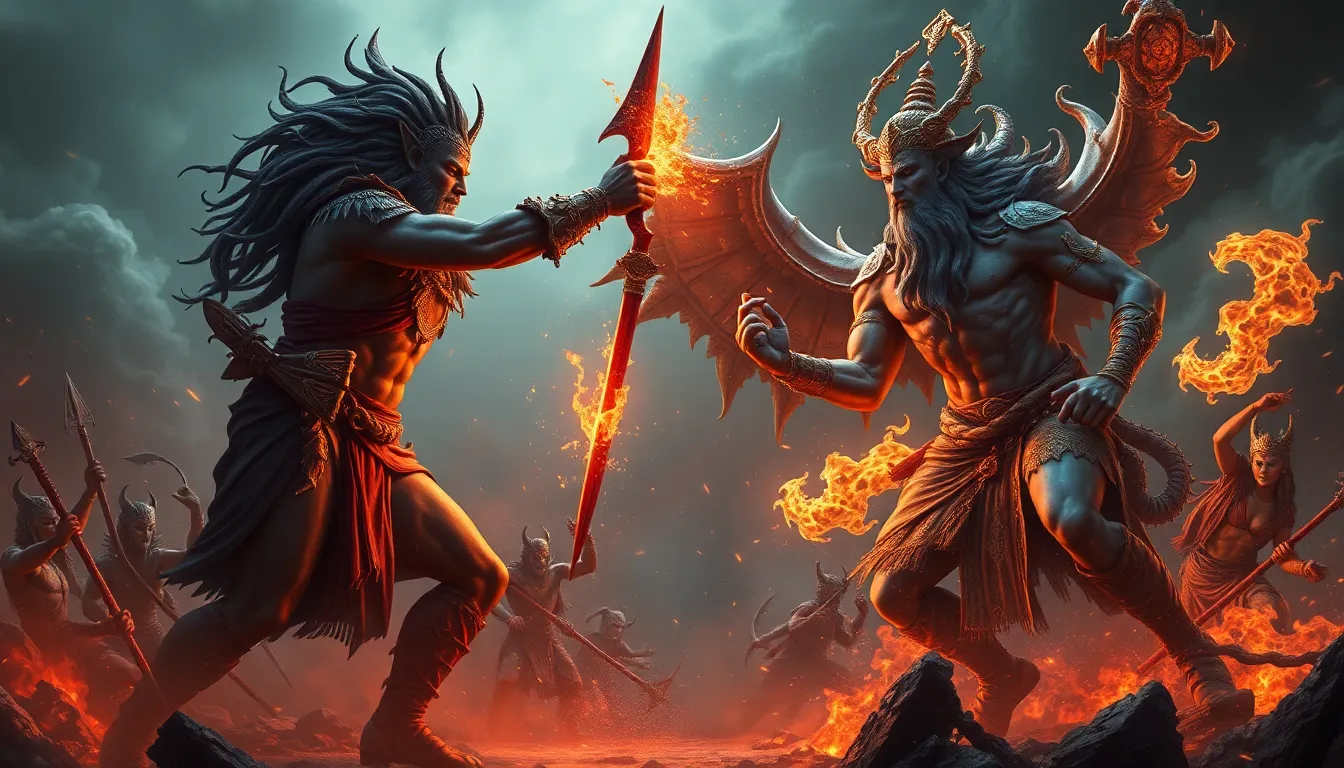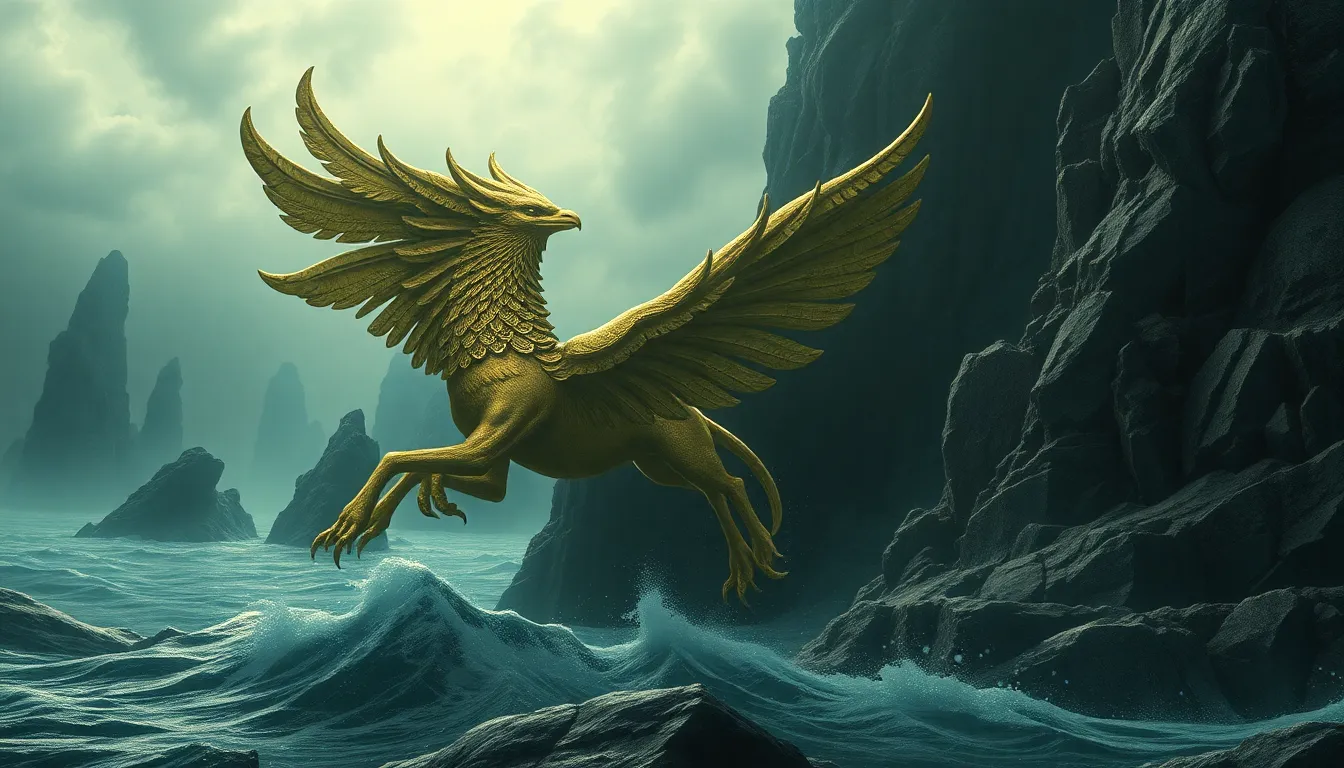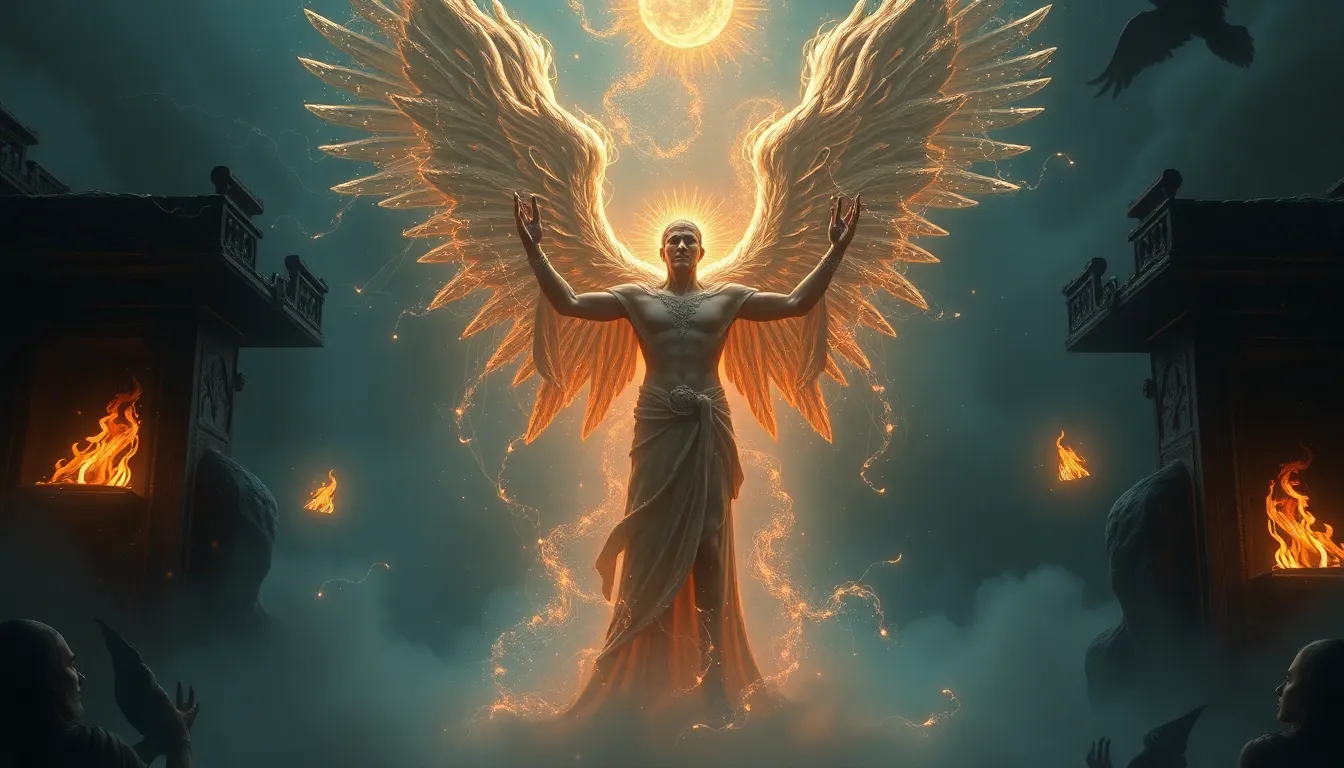The Clash of Deities: Mythological Battles That Shocked the World!
I. Introduction to Mythological Battles
Mythological battles are epic confrontations between gods, titans, and other celestial beings that serve as the backbone of numerous cultural narratives. These conflicts are not merely tales of violence; they symbolize the struggle between order and chaos, good and evil, and often reflect the values and beliefs of the societies that created them.
The importance of these narratives extends beyond entertainment; they offer insights into the human condition, the nature of existence, and the moral dilemmas faced by individuals and communities. This article will explore several significant mythological battles, highlighting their origins, participants, and cultural implications.
II. The Context of Divine Warfare
Understanding mythological battles requires a grasp of pantheons and their roles in various mythologies. A pantheon is a set of all gods and goddesses worshipped in a particular culture, each with distinct personalities, powers, and responsibilities.
Conflicts among deities can arise for various reasons, including:
- Power struggles
- Jealousy and rivalry
- Disagreements over the fate of humanity
Additionally, these myths often mirror the beliefs and societal structures of the cultures from which they originate, illustrating how humans grapple with the divine and the chaos of life.
III. The Titanomachy: Titans vs. Olympians
The Titanomachy is a pivotal conflict in Greek mythology, representing the battle between the older generation of gods, the Titans, and the younger Olympians led by Zeus. This epic struggle is rooted in the fear of tyranny and the quest for justice.
Key figures include:
- Cronus: The leader of the Titans who swallowed his children to prevent them from overthrowing him.
- Zeus: The youngest son of Cronus, who led the Olympians in a rebellion against his father.
The consequences of the Titanomachy were profound, reshaping the cosmos and establishing Zeus as the ruler of the gods. This battle also set the stage for future conflicts involving both divine and mortal characters.
IV. The Battle of Ragnarok: Norse End Times
Ragnarok is a series of events in Norse mythology that includes a great battle among gods, giants, and monsters, culminating in the world’s destruction. This apocalyptic scenario anticipates a rebirth of the world, highlighting themes of cyclical time and renewal.
Major deities and monsters involved include:
- Odin: The Allfather, who faces the wolf Fenrir.
- Thor: The thunder god, who battles the serpent Jörmungandr.
- Frey: The god of fertility, who confronts the fire giant Surtr.
The symbolic significance of Ragnarok lies in its dual message of destruction and rebirth, reflecting the inevitability of change and the enduring nature of life.
V. The Mahabharata: Divine Interventions in Human Conflict
The Mahabharata, one of the longest epic poems in history, narrates the story of the Kurukshetra War, a conflict between two branches of a royal family. This epic is notable for its exploration of duty, righteousness, and the role of the divine in human affairs.
The gods play a crucial role in this battle, providing guidance and intervention to various characters. Notable divine figures include:
- Krishna: The divine charioteer who offers counsel and support to the Pandavas.
- Durga: The goddess who empowers her devotees in the face of adversity.
The lessons learned from this divine participation emphasize the importance of dharma (righteousness) and the complexities of moral choices in times of conflict.
VI. The War of the Gods: Egyptian Deities Clash
In Egyptian mythology, the conflict between Set and Osiris represents a battle between chaos and order. Set, the god of chaos, murdered his brother Osiris, the god of the afterlife, leading to a series of divine conflicts that resonate deeply within Egyptian culture.
The significance of this battle is profound, as it not only represents the struggle for power among the gods but also reflects the cultural values of ancient Egypt, including:
- The importance of order (Ma’at) versus chaos.
- The cycle of life, death, and rebirth.
This myth underscored the Egyptians’ belief in the need for balance and harmony in both the cosmos and their society.
VII. The Hindu Deity Duel: Vishnu vs. Asuras
In Hindu mythology, Vishnu is revered as the protector and preserver of the universe. His battles against the Asuras, demons representing chaos and evil, highlight the ongoing struggle between good and evil.
Notable battles include:
- Vishnu vs. Hiranyakashipu: A fierce battle to protect his devotee Prahlada.
- Vishnu vs. Mahabali: A confrontation that emphasizes humility and devotion.
The themes of good versus evil and the maintenance of cosmic balance are central to these narratives, illustrating the moral complexities within Hindu philosophy.
VIII. The Clash of Titans: Aztec Gods in Conflict
Aztec mythology features a rich tapestry of gods and goddesses, with Huitzilopochtli, the god of war, often engaged in fierce battles with other deities, such as Tezcatlipoca, the god of the night and sorcery.
The significance of these battles lies in their reflection of Aztec societal values, including:
- The importance of sacrifice and warfare in maintaining cosmic order.
- The belief in the cyclical nature of life and death.
These conflicts highlight the interconnectedness of the divine and human realms in Aztec culture, where the actions of the gods directly influenced the lives of the people.
IX. The Legacy of Mythological Battles in Modern Culture
The influence of mythological battles is evident in modern literature, films, and popular culture. Stories of gods clashing continue to resonate with contemporary audiences, serving as metaphors for personal and societal conflicts.
Comparisons can be drawn between these ancient narratives and modern-day conflicts, as themes of power, jealousy, and moral dilemmas persist throughout history. The continuing fascination with these myths underscores their relevance in understanding human nature and the complexities of existence.
In conclusion, mythological battles serve as more than just ancient stories; they are reflections of the human experience, encapsulating our struggles, beliefs, and the eternal quest for balance in a chaotic world.



